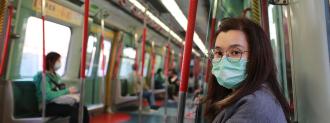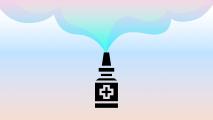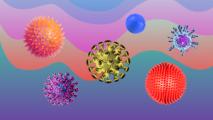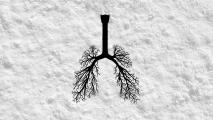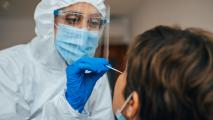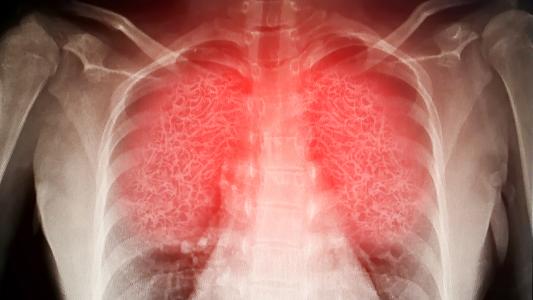With the days getting longer and hotter, people are eager to head outside. Stay-at-home orders are lifting just in time for summer. But without a coronavirus vaccine, many people who believe they may have been exposed already are looking to the next best thing: a coronavirus antibody test or antibody screen.
But experts warn that today’s antibody tests may provide a false peace of mind.
“Just because people have an antibody response to this virus does not mean that they are protected against being reinfected,” David Walt, a Harvard University pathologist, told The Wall Street Journal.
Here is the lowdown.
Unlike a diagnostic test, an antibody screen doesn’t tell you if you are actively infected with the coronavirus. Instead, it measures the presence of antibodies — an immune response to a past infection — in your blood. The immune response is something your body builds over time after the initial infection. Sometimes it doesn’t appear until after recovery, but it usually sticks around for a while afterward.
The most effective coronavirus antibody blocks the spike protein.
We have countless antibodies in our blood, several different ones for every past infection. They are designed to fight against viruses and bacteria as a specialized army that senses old enemies and neutralizes them. But not all antibodies are equal. The most effective coronavirus antibody blocks the spike protein, the major surface protein the virus uses as a key to unlock and enter the human cell. If the virus can’t get in, it can’t infect the cell.
But not all coronavirus antibody tests on the market test for the most important neutralizing antibody, the RBD (“receptor binding domain”) of the spike protein. And the reliability of many current antibody tests are iffy.
Initially, antibody tests were being developed and marketed so quickly that tests with unreliable results were circulating. In May, the FDA curbed that by issuing stricter regulations on tests, stating they must be 90% “sensitive” — meaning that if you are positive, you only have a 10% chance of getting a false negative — as well as 95% “specific” — meaning if you are negative, you have only a 5% chance of getting a false positive.
Sounds pretty accurate, right? But let’s say a person receives a positive RBD antibody screen — does that mean they are immune from future coronavirus infections? The answer is…. “meh.”
Positive Tests Actually Mean Different Things in Different Places
Even tests that claim 99% accuracy in both “sensitivity” and “specificity” can be misleading. That’s because a test’s ability to produce meaningful results depends on its accuracy and the true prevalence of COVID-19 in the local population.
In places where infections are rare, a positive result doesn’t mean much.
Even tests that claim 99% accuracy in both “sensitivity” and “specificity” can be misleading.
If only 1% of the population actually has COVID-19 antibodies, and your test is 99% sensitive, you’ll get true positive results for almost everyone who really has it — about 1% of people. Great. But if your test is 99% “specific,” you’ll get false-positive results in 1% of everyone who hasn’t had it — about another 1% of the population!
So in total, about 2% of people will test positive — but half of those positives are wrong. This means that if you got a positive antibody test, in a place like that, the odds would actually be 50/50 that the result is a mistake. (And, in reality, most tests are less accurate than 99%.)
“In New York City, or in Detroit, New Orleans, Seattle — these areas that have had high prevalence — I think (a positive result is) more likely to be a true positive,” John Williams of UPMC Children’s Hospital of Pittsburgh told The Wall Street Journal.
In New York, for instance, about 21% of the city may have been infected during its epidemic, according to an antibody survey done by the state. Gov. Andrew Cuomo hasn’t released details on the test’s accuracy, but if they used a very reliable test, with 99% specificity, it would mean that about 20% of people really were infected and just 1% had false positives.
In other words, in New York, because so many people truly did get the virus, the odds would be 20-1 that a positive antibody test result is accurate.
But Williams worries about places where positive results are less reliable. “I really worry a false sense of security from a false positive test will allow people to let down their guard.”
We Don’t Really Understand COVID-19 Immunity Yet
Even if you’ve tested for the right antibody, got a positive test result, and that test is accurate, that still doesn’t necessarily mean you’re home free.
The CDC warns that with a positive antibody screen, you should still take protective measures like social distancing, washing your hands, and wearing a mask. Scientists do not yet know if people who had a previous COVID-19 infection can get infected again, or if people who test positive for antibodies but are actively infected can pass it on to others.
“We really don’t yet understand how robust or rapid that immune response is to safely say that you definitely cannot infect others before it kicks in. The immune memory produced is also likely very individual, dictated by factors such as age, health status, etc., so a blanket statement is tough,” Harvard Virologist Kate Jeffrey told Freethink in an email.
That is to say, your immune response from a COVID-19 infection could be different than others: it might be more or less protective, or last for a longer or shorter time than others. We don’t know enough to say for sure, although two studies in monkeys suggest that antibodies are likely to provide immunity for some period of time.
This doesn’t mean that coronavirus antibody tests are worthless — an antibody screen can detect signs of infection when symptoms no longer exist, identifying people who were mildly sick but didn’t get tested at the time.
“We know that a sizable fraction of people have asymptomatic infections or very mild infections and never get tested. So there’s no way to know they were infected without antibody testing,” said UCSF infectious disease specialist Chaz Langelier in a press release.
Even if a coronavirus antibody test doesn’t answer all our questions, it can still help researchers calculate the prevalence of COVID-19 and predict the spread of the disease, helping us prepare for the future.
